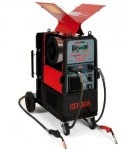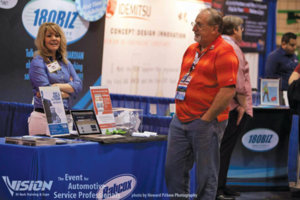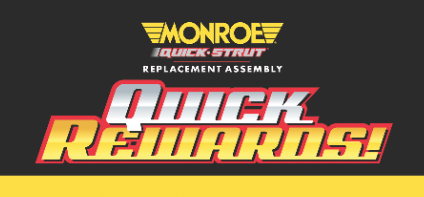When some technicians hear the word “training,” it doesn’t interest them in the least. They think it means giving up an evening or a Saturday to sit through a long, boring lecture that may or may not teach them anything new. Maybe they’ve been duped into attending a “training clinic” that turned out to be nothing but a three-hour sales pitch by a factory sales rep. Or, they attended a clinic that was way too basic for their skill level, or they discovered they knew more about the subject than the instructor who was leading the class. Those kinds of clinics can be a total waste of your time. I know, because I’ve had to sit through a few of those myself.
Others avoid training because learning takes effort, and for some people it can be downright painful. You have to listen, pay attention and take notes so what you hear doesn’t go in one ear and out the other. But that’s what training is all about: stuffing new information into the gray matter between your ears so you can use your brain to diagnose and repair vehicles more easily, accurately and profitably.
The fact is, training is an absolute necessity these days if you want to remain competent and competitive in the auto repair business. The new technology that is going into today’s vehicles has been changing at a break-neck pace. I’m talking about things like hybrid powertrains, controller area networks, flash reprogramming PCMs, direct fuel injection, coil-on-plug ignition systems, EVAP and catalytic converter diagnostics, stability control, adaptive cruise control, electric power steering, tire pressure monitoring systems, diesel engines, alternative fuels, GPS navigation, etc., etc., etc. If you don’t have the know-how (and tools) to work on these new systems, you may not be able to diagnose or repair certain problems on late-model vehicles. In fact, you might not even be able to perform basic maintenance on some of these vehicles if you are not aware of certain precautions or special procedures that may be required. That’s why training is so important.
As an automotive technical writer, I have to keep up with all of this stuff so I can write accurate and informative articles for our readers. So earlier this summer, I attended the second annual A.S.T. Training Conference
(www.asttraining.com) in beautiful Akron, Ohio. Believe me, it was well worth my time!
John Forro’s class on “Scan Tool Decisions” was aimed at technicians and shop owners who are thinking about purchasing a new scan tool. John discussed the pros and cons of the various aftermarket and OEM scan tools, which ones worked best on which makes and models of domestic, Asian and European vehicles, and which scan tools in his opinion were “best buys” or “must have” tools. It was a non-biased, honest presentation by an expert who is very familiar with his subject matter. In fact, John is making a whole series of “how-to” videos that review the capabilities and functions of each of these scan tools. This is exactly the kind of information anyone who’s looking at scan tools should have before making a purchasing decision.
John also gave a class on “Controller Area Network (CAN) Communications.” Most vehicles today have multiple modules that control a wide range of functions, everything from the engine and transmission, to the brakes, suspension, climate control system, air bags, anti-theft system, power accessories (windows, seats, mirrors and sunroof), navigation and communications. All of these modules talk to each other via the CAN bus, and one of the modules (usually the body control module) is the main gatekeeper of the electronic chatter. The gatekeeper module wakes up the other modules and tells them when to go to sleep. Consequently, if there are communication issues on the main CAN bus, or between modules, or a module isn’t responding, you have to know how to diagnose such faults. One such trick is knowing how to use a scan tool to “ping” modules to wake them up.
James Halderman’s class on “Alternative Fuels” was a real eye-opener on everything from the fuel quality (or lack thereof) of gasoline, to driveability issues that can be caused by using E85 in a vehicle that is not a “Flex-Fuel” vehicle. Of course, he also covered what’s happening with biodiesel, compressed natural gas (CNG), propane and synthetic fuels, and what the future holds for hydrogen fuel cells.
I also sat in on Bruce Amacker’s class on “Ford Powerstroke Diesels,” which was unquestionably the most thorough and informative diesel class I’ve ever attended. This was a real hands-on class by a real hands-on diesel guy for technicians on how to diagnose and troubleshoot problems with the diesel injection system, including the injectors, internal control pressure (ICP) sensor, internal pressure relief (IPR) solenoid and high pressure fuel components. You’re not going to learn any of this stuff without attending a class like this.
There were also classes on “Toyota Driveability Issues” by Dan Marinucci, “International Harvester Diesel Diagnostics” by Anthony Crespo, “Enhanced Ignition System Testing” by Bill Fulton, “Transducer Testing” by John Thorton, “Industry Insights” by Bob Starr, and even a presentation on “Service Writing Language” by fellow Babcox editor Andrew Markel (he covered the differences between recommending “suggested” repairs and “required” repairs).
In short, there was a wealth of valuable information presented at this training conference. I know I took home a lot of new information in my gray matter that will find its way into future articles. And I know that all of the technicians and shop owners who attended also took home new knowledge that should help them in their everyday jobs.
So the next time somebody mentions training, don’t avoid it. Go for it!








